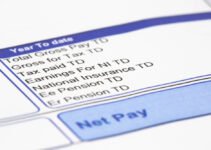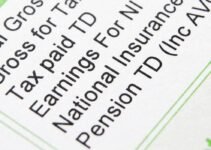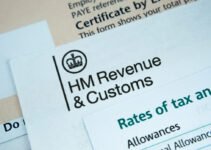The United Kingdom operates a comprehensive tax system that plays a crucial role in funding public services and infrastructure. The UK tax rates are determined by various factors, including an individual’s or organization’s income, the nature of their earnings, and their residency status.
Income Tax Rates and Bands for 2025
As we approach 2025, understanding the UK tax rates is increasingly important for both salaried employees and self-employed individuals. The income tax system in the UK operates on a tiered structure, whereby different bands of income are taxed at varying rates. For the tax year 2025, the income tax rates remain largely unchanged from 2024, providing some continuity for taxpayers.
The personal allowance, which is the amount of income one can earn before being taxed, is set at £12,570. This threshold indicates that any income earned below this limit is not subject to income tax. Income above the personal allowance is taxed in different bands. The basic rate of 20% applies to income between £12,571 and £50,270. This is an essential bracket for many working individuals who fall within this income range, allowing them to remain relatively unaffected by higher tax burdens.
For income between £50,271 and £150,000, the higher rate of 40% is applicable. This means that individuals earning within this bracket will see a noticeable increase in their tax deductions. Furthermore, for individuals earning above £150,000, the additional rate of 45% applies, significantly impacting the net income of high earners. It is crucial to note that these rates are subject to various reliefs and allowances, which can alter the net tax liability.
Additionally, there have been discussions regarding potential changes to these thresholds and rates in future budgets, particularly in light of economic conditions. Therefore, taxpayers should remain vigilant regarding announcements from HM Revenue and Customs to ensure they are fully aware of how these rates may affect their financial planning.
National Insurance Contributions (NIC) in 2025
National Insurance Contributions (NIC) play a pivotal role in the United Kingdom’s social welfare system. They are primarily designed to fund various state benefits, including the NHS, state pensions, and unemployment benefits. For the year 2025, the calculations for NICs will remain essential for both employees and employers, influencing their overall tax liabilities as part of the comprehensive examination of the UK tax rates.
The structure of NICs consists of various classes, with Class 1 primarily applicable to employees and Class 2 and Class 4 aimed at the self-employed. Class 1 NICs are deducted from employees’ wages, while employers contribute on behalf of their staff. For the self-employed, Class 2 is usually a flat rate, while Class 4 contributions depend on profits. The rates for each class can vary year by year, and understanding the specific contributions is crucial for financial planning.
Moreover, NICs interact closely with income tax, impacting the net income received by taxpayers. Individuals pay both NICs and income tax, with each having its thresholds and rates. As part of the broader UK tax rates system, the proposed changes to NIC thresholds for the year 2025 could significantly affect taxpayers. Discussions concerning amendments to the NIC rates have been circulating, especially in the context of economic recovery and the need for sustainable funding for public services.
Any adjustments to NICs not only influence revenue streams for the government but also affect individual financial obligations and disposable income. Therefore, understanding the current landscape of NICs, alongside the UK tax rates, is vital for individuals navigating the intricacies of their tax responsibilities in 2025.
Apply online for a National Insurance Number if you need one.
Tax Planning and Considerations for 2025
Effective tax planning is essential for managing one’s financial health, particularly in the context of the 2025 UK tax rates. Individuals and businesses must adopt strategies that align their financial goals with these tax obligations to optimize their overall tax liability. One of the cornerstones of smart tax planning involves making tax-efficient investments. Options such as Individual Savings Accounts (ISAs) or pensions allow for tax-free growth or deferred tax payment, alleviating the burden of UK tax rates in the long run.
Additionally, understanding available allowances is integral to minimizing taxable income. In 2025, allowances may cover savings, dividends, or capital gains, which could significantly impact how much tax one ultimately pays. By fully utilizing these allowances, taxpayers can effectively reduce their exposure to higher tax brackets, which is particularly relevant in a landscape where UK tax rates may see increases due to fiscal policy changes. Therefore, remaining informed about current thresholds is crucial for taxpayers.
Moreover, familiarity with various reliefs and deductions can not only contribute to effective financial planning but also lessen tax liabilities. For example, reliefs related to charitable donations or specific business expenditures can positively influence the positioning under forthcoming UK tax rates. Taxpayers should keep abreast of changes in tax laws that may influence eligibility for such reliefs, as even small updates can yield significant tax savings.
In summary, proactive tax planning involves a combination of smart investment choices, maximizing allowances, and leveraging available reliefs and deductions. The increasing complexity of the fiscal environment necessitates that taxpayers remain vigilant, informed, and adaptive to effectively navigate the implications of the 2025 UK tax rates on their financial strategies.




